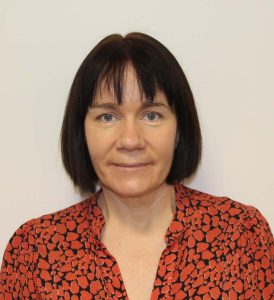
On this the 75th anniversary of the HMI, I started to reflect on the changes that have occurred in our understanding of leadership over the past 75 years, writes Mellany McLoone.
There has been a significant growth in leadership theory, style and practice and it is an ever evolving concept. For example, the role of women in leadership positions. It’s very likely when the HMI was established there was hardly any women in leadership positions, whereas now it’s very unusual for women not to feature very prominently in all types of leadership roles within an organisation.
I have worked in the Irish public health system for over thirty years and I have genuinely loved all my roles and services I have worked in. They have been diverse and challenging and some days really difficult but the overriding thing which has sustained me has been the people. These colleagues and managers have influenced the type of leader I have become and I believe my behaviour is a product of how I have been treated during my career.
how we are treated is a significant determinant in how effectively change is implemented, sustained and the quality of the services we provide.
As our health services embark on another significant change programme, there will be much discussion regarding change programmes, project management support, leadership styles and the type of leaders we require to lead our organisation through the next decade and beyond. While all of the theory is important and challenges our thinking, I believe the single biggest enabler of change is ourselves and more importantly how we treat other people and bring them with us. Successful change cannot be implemented by organisations, it can only be implemented by the people who work in services. My greatest leadership learning has been how we treat each other, and how we are treated is a significant determinant in how effectively change is implemented, sustained and the quality of the services we provide.
Looking back over my own career, there are a number of key moments for me which had a significant impact on me, even if I didn’t realise it at the time. The first of these was very early in my career, my son was in hospital for a period of time. I had to leave work suddenly and was absent for about three weeks over Christmas and New Year. Thankfully, my son fully recovered but I will never forget the kindness and support I received from all my colleagues during that time. When I returned to work, my boss met with me, expressed genuine delight my son had recovered and encouraged and supported me both at work and to put it all behind me. This compassion and empathy has always stayed with me and I would like to think it positively impacted on how I treated members of my team when similar personal situations arose. It also created a huge sense of loyalty within me to both the individual and the organisation.
In my journey, I have been fortunate to learn from many mentors who have taught me new skills, developed my experience and generally taken me under their wing. They have provided me with advice and acted as role models for the leader I aspire to become. These mentors have been largely in informal relationships and include mentors from my work life, but also people from my everyday life, like parents and friends. All of these mentors have positively influenced me and one moment of belief or nudge from my mentor has changed my career direction. These mentors have generously given me their time and expertise to guide my development and I have learnt an enormous amount from them. In addition to acting as positive role models, they have provided me with the tools to achieve my goals and believed in me more than I did myself, at particular times. I have learnt from their experiences and behaviour and there have also been examples of poor leadership and I learnt who I definitely did not want to become!
In addition to supporting my own personal development, mentors also taught me the importance of building and developing a functioning team. Teamwork in health is defined as two or more people who interact interdependently with a common purpose, working toward measurable goals that benefit from leadership, that maintain stability, while encouraging honest discussion and problem solving (Salas E et al., 1992). Through being a member of a team and also leading teams, I learnt the value of collaboration and gathering people around me who keep me grounded. I have learnt from my mentors the importance of seeking difference perspectives and encouraging people to contribute ideas and to challenge my suggestions.
I will leave you with this quote… “Clients do not come first. Employees come first. If you take care of your employees, they will take care of the clients.” Richard Branson
Salas E et al. “Toward an understanding of team performance and training.” In: Sweeney RW, Salas E, eds. Teams: their training and performance. Norwood, NJ, Ablex, 1992.

